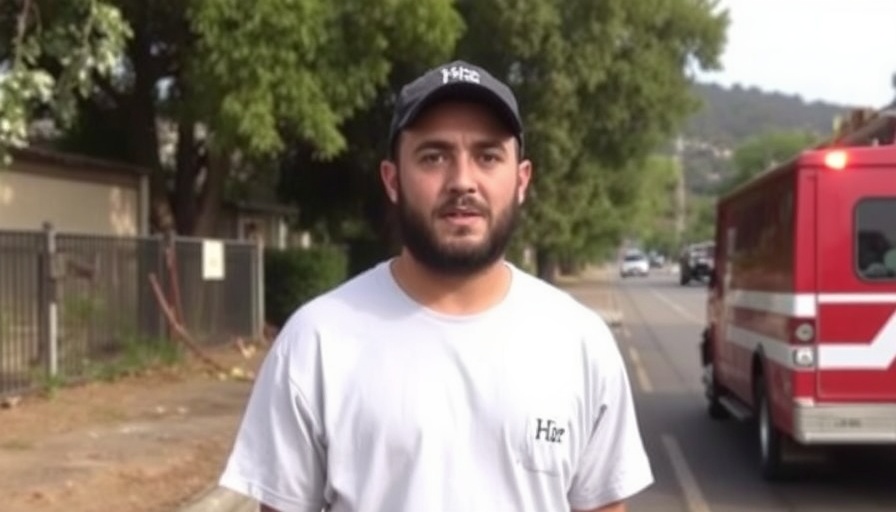
The Controversial Case of the Palisades Fire Suspect
As communities in California grapple with the aftermath of devastating wildfires, the legal proceedings surrounding the Palisades Fire suspect, Jonathan Rinderknecht, are bringing to light a complex narrative that intertwines issues of personal trauma and public safety. Charged with arson, Rinderknecht recently described a perilous event in a Hollywood apartment that he attributes as a catalyst for his actions.
A Disturbing Allegation
Rinderknecht, who is currently being held without bail after his arrest in Florida, claims that a former neighbor attempted to sexually assault him. This assertion surfaced during a recent court hearing, where Rinderknecht acted as his own attorney to file a lawsuit against the alleged assailant. According to court documents, these events took place just weeks after he was questioned by authorities regarding the wildfire incident.
A Dark Atmosphere
In the civil complaint, Rinderknecht details a disturbing experience involving drug use and threats of sexual violence. He reports that after his former neighbor entered his home, he began smoking crack cocaine and subsequently exposed himself, leading to unwanted sexual advances. The claims paint a picture of fear and vulnerability, suggesting that Rinderknecht felt his safety was at risk within his own home.
Calls to the Authorities
In the aftermath of the alleged assault, Rinderknecht mentioned that he contacted law enforcement multiple times, resulting in two police responses. Allegedly, during one of these calls, the neighbor was arrested, underscoring a troubling pattern of behavior that Rinderknecht sought to escape.
Legal Proceedings Unfolds
The controversy surrounding Rinderknecht complicates the narrative of the Palisades Fire itself, which consumed thousands of acres and displaced many residents. As the legal process evolves, the complexity of his claims raises questions about the stigma of mental health and the ways in which personal experiences can influence destructive actions.
Community Reactions
Locally, the community in Bakersfield is both shocked and engaged with the unfolding case. Some residents are calling for increased efforts in preventing arson while also advocating for better mental health resources for individuals in crisis. This dual focus highlights the interconnectedness of fire safety and mental well-being, bringing to the forefront the need for a unified community response.
A Path Forward
Considering the painful and transformative narratives behind incidents like the Palisades Fire, one might wonder how communities can heal. Discussions around community support systems, mental health awareness, and responsible recreational activities are underway. Residents are encouraged to participate in local forums aimed at promoting safety and accountability.
The Bigger Picture
In the grander scheme, this case isn't simply about arson; it reflects larger societal issues regarding personal trauma and its repercussions on community safety. It compels us to ask difficult questions: How can we better support individuals facing crises? And what systems can we implement to safeguard both our communities and those within them?
Conclusion
As residents of Bakersfield observe the developments in Rinderknecht's case, it's clear that there are far-reaching implications tied to personal safety, mental well-being, and community involvement. The members of the community must unite to foster a safer environment, ensuring that incidents like the Palisades Fire become a distant memory and not a painful reminder of what once was.
 Add Row
Add Row  Add
Add 



Write A Comment